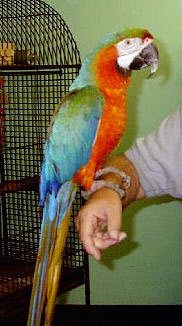Quote:
So true! Our AG reached through his cage and chewed up our mantle! Needless to say his caged got moved!
So true! Our AG reached through his cage and chewed up our mantle! Needless to say his caged got moved!
Follow along with the video below to see how to install our site as a web app on your home screen.
Note: This feature may not be available in some browsers.

